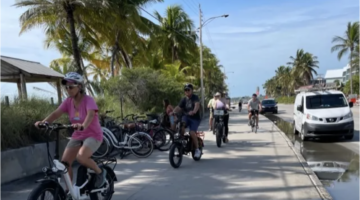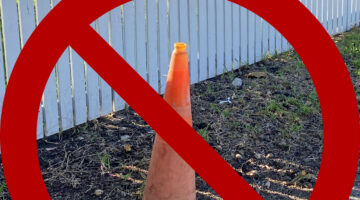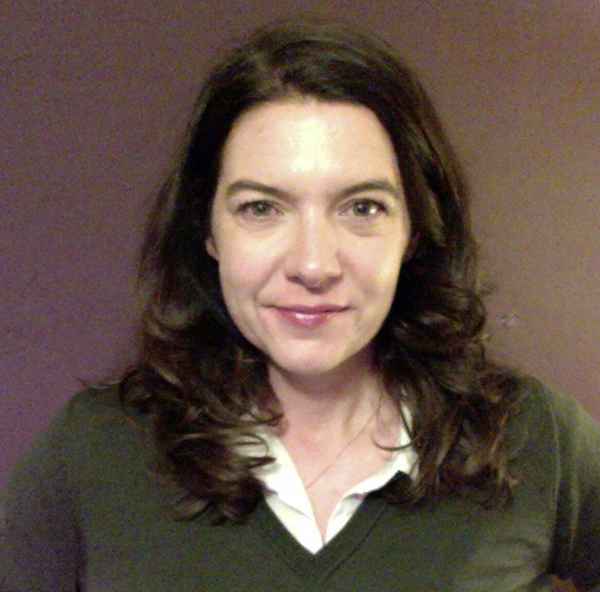Shipwrecks, Tree Rings, and Hurricanes Take Center at Next Key West Art & Historical Society Distinguished Speaker Series
On Thursday, March 23 at 6:00pm, Key West Art & Historical Society welcomes Distinguished Speaker Series guest Valerie Trouet to the Helmerich Research & Learning Center at the Custom House Museum for an evening presentation on “Shipwrecks, Tree Rings, and Hurricanes.” Trouet, a tree-ring scientist and paleoclimatologist, will relate how she and her team of scientists at the University of Arizona use tree rings to study past climate, forest ecosystems, and their interactions.
While we might not have much forest here in the Florida Keys, these studies can help us gain “an understanding and thus prediction of hurricanes in a changing future,” says Trouet. Key West Art & Historical Society got together with Trouet recently for a brief Q & A to explore her talk and the science behind it.
KWAHS: What is your background and how did you come to this subject interest?
Trouet: I am a tree-ring scientist and a paleoclimatologist: I study the climate of the past using tree rings. At a tree-ring conference in 2013, I was having a beer with two colleagues – one of whom studies trees on the Florida Keys, the other an archeologist who studies the wood in shipwrecks – and that’s where we came up with the idea to combine the two to look at past hurricanes in the Caribbean.
KWAHS: Could you talk a bit about your “team”?
Trouet: There was three of us in the team: myself, Grant Harley from the University of Southern Mississippi who discovered and sampled the old slash pine trees on the Florida Keys, and Marta Dominguez-Delmas, who is a Spanish archeologist and specializes in using tree rings to date shipwrecks.
KWAHS Have you ever been to the Keys? What intrigues you about hurricanes & shipwrecks?
Trouet: Actually, no, I’ve never been. This will be my first visit and I’m very excited about it! As a researcher, what interests me most is how climate has influenced human societies and forest ecosystems in the past and what we can learn from that for the future. I also find it fascinating to combine information derived from tree-ring data with other sources of information (e.g., from shipwrecks).
This study was very intriguing to work on, because it combines many of the aspects that I enjoy working on and it helped us to improve our understanding of how hurricanes work. I find it important that my work is relevant for the challenges that we’re facing today and hurricanes definitely are definitely one of them.
KWAHS: How does this talk directly pertain to the islanders?
Trouet: Well, I’m not sure if the islanders are aware that there are such old trees there and the kinds of information that we can extract from them. It is worth taking care of these trees! I’m also assuming that every islander has an interest in a better understanding and thus prediction of hurricanes in a changing future.
You don’t have to be a scientist to understand what Trouet will offer, as she will explain her research “from scratch.” All you need is a “healthy dose of curiosity,” she says.
“I hope the audience will come away with an understanding of how much we can learn from tree rings, how exciting discovery-driven research can be, how important the past is in understanding the future.”
The Distinguished Speaker Series project is sponsored in part by the Helmerich Trust and the Department of State, Division of Cultural Affairs, the Florida Council of the Arts and Culture and the State of Florida. Additional support provided by the Marriott Key West Beachside Resort.
Tickets are available at through kwahs.org/education/distinguished_speaker_series; $5 for members, $10 for non-members—advanced ticket purchase is recommended. For more information contact Adele Williams, Director of Education, at 305-295-6616, x115. Your Museums. Your Community. It takes an Island.
[livemarket market_name="KONK Life LiveMarket" limit=3 category=“” show_signup=0 show_more=0]



No Comment